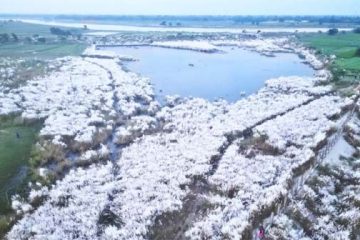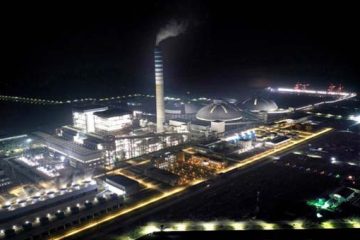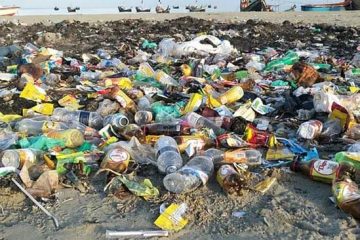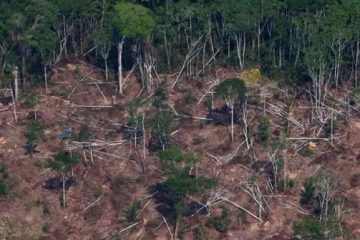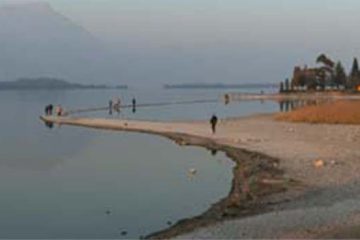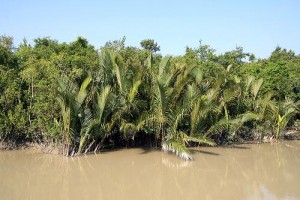 In the Sundarbans, surface water temperature has been rising at the rate of 0.5 degree Celsius per decade over the past three decades, eight times the rate of global warming, says a new study, reports Times of India on Tuesday. That makes the Sundarbans one of the worst climate change hotspots on the globe.
In the Sundarbans, surface water temperature has been rising at the rate of 0.5 degree Celsius per decade over the past three decades, eight times the rate of global warming, says a new study, reports Times of India on Tuesday. That makes the Sundarbans one of the worst climate change hotspots on the globe.
The study, carried out over 27 years from 1980 by scientists from India and the US, found a change of 1.5 degrees Celsius, a clear challenge to the survival of flora and fauna in the world’s largest mangrove forest.
A UNESCO World Heritage site, the Sundarbans covers 9,630 sq km in India and Bangladesh. It is home to a number of endangered species.
‘Surface water temperature in the deltaic complex of the Indian Sundarbans experienced a gradual increase of 0.5 degree Celsius per decade in last three decades. This rate is much higher than the global warming rate of 0.06 degree Celsius per decade and Intergovernmental Panel on Climate Change-documented rate of 0.2 degree Celsius per decade in the Indian Ocean during 1970-99,’ Abhijit Mitra, professor in the Department of Marine Sciences, Calcutta University, told IANS.
The study published in the latest issue of scientific journal Current Science found that faster melting of Himalayan glaciers have decreased the salinity at the western end of the Indian Sundarbans while salinity has increased on the eastern end due to clogging of connections of the estuaries with fresh water on account of heavy siltation and solid waste disposal from Kolkata.
The scientists also studied variations in dissolved oxygen, pH level (a measure of acidity), transparency and water quality to know the impact of global warming on the ecosystem.
‘The surface water pH over the past 30 years has reduced in the region, thus increasing acidification. The variations in salinity and increased temperature could be reasons for observed variation in pH and dissolved oxygen,’ said Mitra.
The concentration of dissolved oxygen in the western sector of the Sundarbans showed an increasing trend in contrast to the eastern part where it is decreasing significantly.
‘Depletion in dissolved oxygen can cause major shifts in the ecological habitation in the region. Rising temperature could also be one of the reasons for decreasing dissolved oxygen in the Sundarbans,’ he said.
Global warming accelerates the process of erosion in coastal and estuarine zones either through increased summer flow from the glaciers or by increased tidal amplitude due to sea level rise.
Erosion and sedimentation processes, along with subsequent churning action, increase the saturation of suspended solids, thus decreasing the transparency.
‘The reduced transparency affects the growth and survival of phytoplankton, the small microscopic plants in the oceans that produce three-fourths of the earth’s oxygen supply. Damage to this community may adversely affect the food chain in this mangrove-dominated deltaic complex, which is the nursery and breeding ground of 150-250 species of fish and other organisms,’ said Mitra.
The study concluded that although the observed changes could result from a combination of climate change and human interventions and related phenomena, the changes are real and their impact will be felt in the ecosystem in the coming years.
Photo: TimeLessEarth

